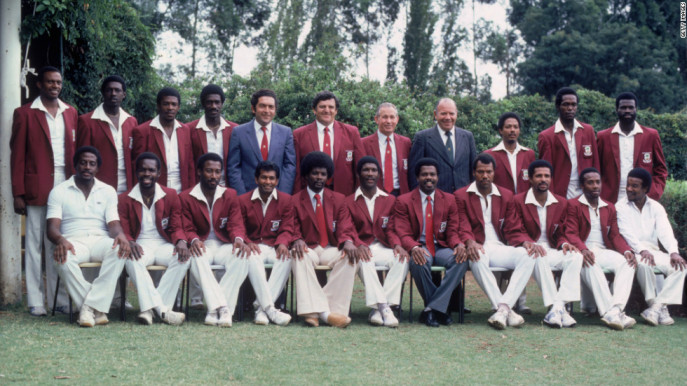
Few leaders in cricket history have transformed a team’s destiny quite like Clive Lloyd. Towering in stature and presence, both physically and mentally, Lloyd was more than just a captain — he was the architect of the West Indies’ golden era. Under his watch, the Caribbean team evolved from inconsistent entertainers into the most feared and respected side in world cricket. But was Clive Lloyd truly the greatest captain ever?
The Genesis of Fire
The early 1970s were turbulent years for West Indies cricket. Though the islands produced genius batsmen and fiery bowlers, the team often lacked unity and direction. The humiliating 5–1 loss to Australia in 1975–76, at the hands of Dennis Lillee and Jeff Thomson, became the turning point. Lloyd’s men were battered — physically and psychologically — but from those ashes rose a new fire.
It was then that Lloyd decided enough was enough. The West Indies would never be bullied again. He built a team that combined raw pace, flair, and mental fortitude. Out went the friendly island approach; in came professionalism, pride, and relentless aggression.
The Birth of a Dynasty
Under Lloyd’s leadership, the West Indies became an unstoppable force. The 1975 World Cup triumph signaled the beginning of a new era. With legends like Viv Richards, Gordon Greenidge, Desmond Haynes, Michael Holding, Andy Roberts, and Malcolm Marshall, Lloyd crafted a team that didn’t just win — they dominated.
From 1980 to 1995, the West Indies went unbeaten in Test series — a record that stands as one of cricket’s greatest achievements. And it all started under Lloyd’s vision of unity: multiple islands, one purpose.
Leadership Beyond the Boundary
Clive Lloyd wasn’t a flamboyant tactician like Ian Chappell or a master psychologist like Mike Brearley. His genius lay in people management. He led by example — calm in crisis, respectful yet firm, and fiercely protective of his players.
He gave his men belief — that West Indian cricketers weren’t just entertainers for foreign crowds, but champions who could dominate the world on their own terms. That belief echoed through every bouncer, every century, every victory lap.
As former fast bowler Colin Croft once said, “Clive Lloyd made us believe we were the best — and then he made sure we played like it.”
Tactics and Transformation
Lloyd’s decision to unleash a four-pronged pace attack revolutionized cricket. It wasn’t just strategy — it was philosophy. He knew that fast bowling was the Caribbean’s natural strength, and he harnessed it ruthlessly.
While other captains relied on spinners or swing bowlers, Lloyd turned raw speed into psychological warfare. His bowlers didn’t just take wickets; they broke spirits. Batting against the West Indies became an exercise in survival.
That tactical foresight made him a pioneer — one whose influence reshaped Test cricket forever.
Beyond Statistics: The Symbolism of Lloyd’s Captaincy
To measure Lloyd’s greatness by numbers alone is to miss the point. His captaincy symbolized much more — it was about Caribbean pride, racial identity, and global respect. In an era when West Indians faced prejudice both at home and abroad, Lloyd’s team became a living statement of excellence and equality.
The documentary Fire in Babylon captured it perfectly: the West Indies weren’t just playing cricket — they were fighting for dignity. And Lloyd was the general leading that revolution.
Was He the Greatest Ever?
That depends on how one defines greatness. Statistically, captains like Ricky Ponting, Steve Waugh, and Graeme Smith boast impressive records. Strategically, Mike Brearley and Imran Khan are often praised for their tactical nuance.
But in terms of transformation, unity, and cultural impact, Clive Lloyd stands in a class of his own. He didn’t just win matches — he rewrote history, turning a fragmented team into the most dominant unit the sport has ever seen.
If greatness is measured by legacy, leadership, and inspiration, then yes — Clive Lloyd may well be the greatest captain cricket has ever known.
What do you think? Was Clive LLoyd the greatest test captian of all time? Leave your thoughts below!






Leave a Reply